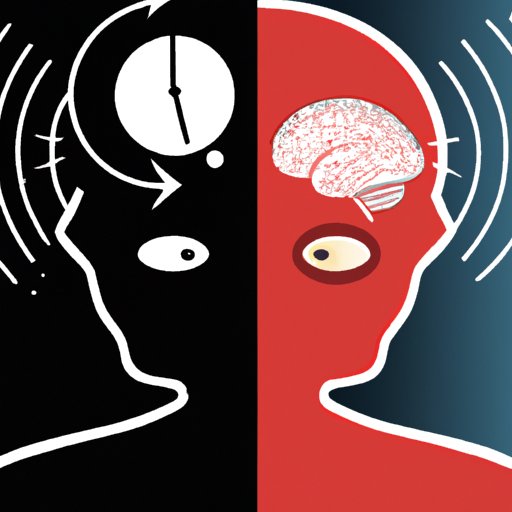
Introduction
Have you ever been so busy that you skipped a night of sleep? Or maybe you’re a college student trying to survive on just a few hours of sleep each night. Sleep deprivation is a common problem, but have you ever wondered how long you can survive without sleep? In this article, we will explore the science behind sleep and its functions, the effects of sleep deprivation on the body and mind, and discuss tips for achieving better sleep.
Scientific Perspective
Sleep is a vital function for the human body. During sleep, our body repairs and restores itself, consolidates memories, and strengthens the immune system. However, sleep is not just a luxury. It’s a biological necessity. For adults, it’s recommended that we get between 7-9 hours of sleep per night. Studies have shown that going without sleep can lead to a number of negative effects on the body and mind.
The longest recorded time without sleep is 11 days, according to the Guinness Book of World Records. However, most people will start to experience negative health effects after just one night of sleep deprivation. In terms of mental effects, sleep deprivation can lead to a decline in cognitive functioning, including memory recall, decision-making abilities, and reaction time. In addition, the risk for accidents, including car accidents, increases with sleep deprivation.
Personal Experience
Sleep deprivation can be debilitating and isolating. Individuals who have gone long periods without sleep report a range of symptoms, including exhaustion, irritability, hallucinations, and paranoia. One individual reported feeling “like a zombie” after several nights without sleep. The struggles and challenges associated with sleep deprivation can affect not only the individual but also their loved ones.
However, the good news is that individuals can recover from sleep deprivation. Catching up on missed sleep can help alleviate symptoms, and establishing healthy sleep habits can prevent future episodes of sleep deprivation. Individuals who have experienced sleep deprivation recommend napping when possible, avoiding caffeine and alcohol, and prioritizing rest and relaxation.
Causes and Effects
Sleep deprivation can be caused by a variety of factors, including lifestyle choices, medical conditions, and shift work. In addition, stress, anxiety, and depression can all affect sleep quality and duration. Shift workers are more likely to experience sleep deprivation due to their altered sleep schedules. The effects of sleep deprivation on the body and mind are far-reaching and can lead to chronic health problems, including obesity, diabetes, and heart disease.
Sleep Disorders
Sleep disorders can also contribute to sleep deprivation. Insomnia, sleep apnea, and restless leg syndrome are all common sleep disorders that can affect sleep quality and duration. Insomnia is characterized by difficulty falling asleep or staying asleep, while sleep apnea is a breathing disorder that can cause individuals to stop breathing during sleep. Restless leg syndrome is a condition that causes discomfort and an irresistible urge to move the legs. Proper diagnosis and treatment of sleep disorders can help individuals improve their sleep quality and duration.
Tips for Better Sleep
Improving sleep quality and duration is essential for overall health and wellbeing. Establishing a regular sleep schedule, avoiding stimulating activities before bedtime, and creating a relaxing sleep environment are all ways to improve sleep quality. In addition, avoid eating heavy meals, exercise regularly, and avoid staring at your phone or computer screen before bedtime.
Myths and Misconceptions
There are many myths and misconceptions about sleep, including the belief that some people can function without sufficient sleep. However, research shows that individuals who regularly get less than the recommended amount of sleep are more likely to experience negative health effects. Prioritizing sleep is essential for optimal health and wellbeing.
Conclusion
Sleep is essential for our body and mind. Neglecting proper sleep can have far-reaching negative effects on our physical and mental health. Establishing healthy sleep habits, seeking treatment for sleep disorders, and prioritizing rest and relaxation can help improve sleep quality and duration. By taking sleep seriously, we can improve our overall health and wellbeing.




